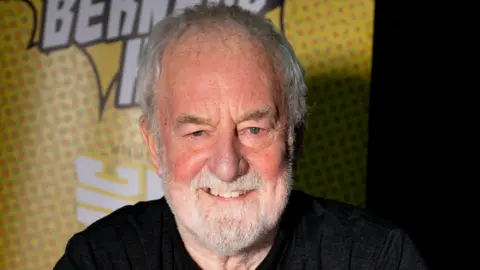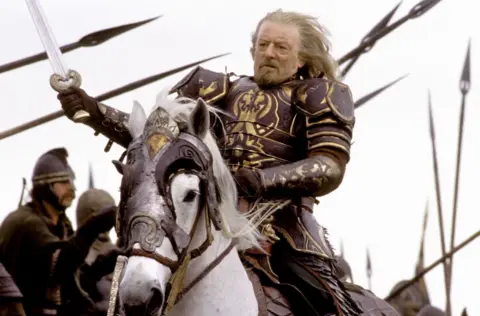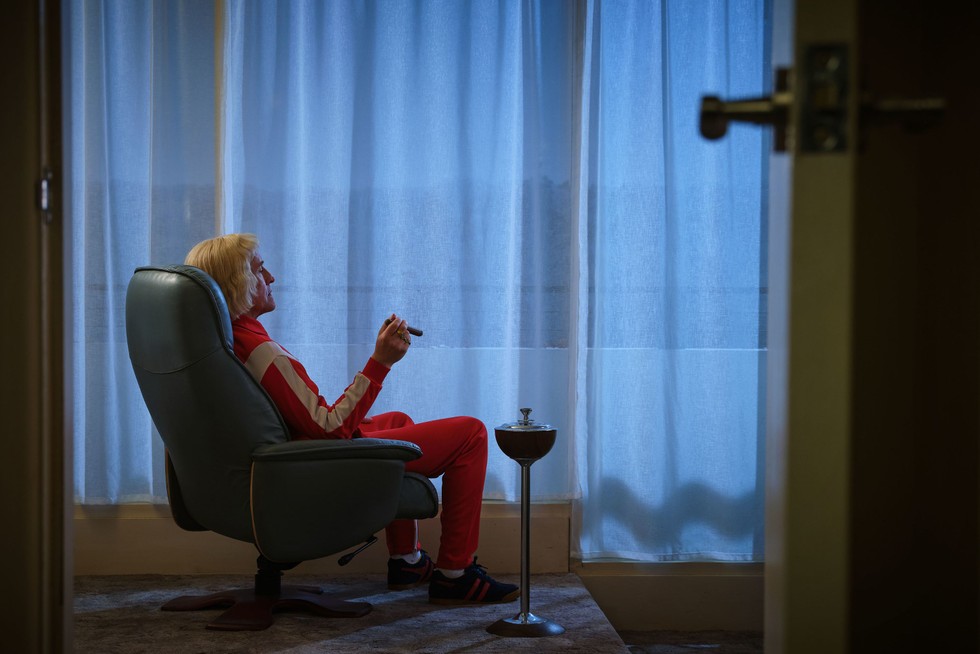
Actor Bernard Hill, best known for roles in Titanic and Lord of the Rings, has died aged 79.
Bernard Hill enjoyed a career spanning decades in film and television. He played Captain Edward Smith in the 1997 Oscar-winning film and King Théoden in the Lord of the Rings.
His breakout role was in 1982 BBC TV drama Boys from the Blackstuff, where he portrayed Yosser Hughes, a character who struggled – and often failed – to cope with unemployment in Liverpool.
He died early on Sunday morning, his agent Lou Coulson confirmed.
Alan Bleasdale, who wrote Boys from the Blackstuff, said Hill’s death was “a great loss and also a great surprise”.
“It was an astonishing, mesmeric performance – Bernard gave everything to that and you can see it in all the scenes. He became Yosser Hughes.”
He added: “I was desperate to work with him. Everything he did – his whole procedure for working, the manner in which he worked and his performance was everything that you could ever wish for.
“You always felt that Bernard would live forever. He had a great strength, physically and of personality.”

TCD/Alamy | Bernard Hill in full flow as King Théoden in the Lord of the Rings
Hill, who was from Manchesterand lived in Suffolk, was due to return to TV screens in series two of The Responder, a BBC drama starring Martin Freeman, which begins airing on Sunday.
Lindsay Salt, director of BBC Drama, paid tribute to him, saying: “Bernard Hill blazed a trail across the screen, and his long-lasting career filled with iconic and remarkable roles is a testament to his incredible talent.”
“From Boys from the Blackstuff, to Wolf Hall, The Responder, and many more, we feel truly honoured to have worked with Bernard at the BBC. Our thoughts are with his loved ones at this sad time.”
In Boys from the Blackstuff, Hill drew praise for his gritty portrayal of Yosser Hughes, an intense and memorable character who pleaded “Gizza job” as he sought work.
That show won a Bafta for best drama series in 1983, and in 2000 it was ranked seventh on a British Film Institute list of the best TV shows ever made.
Another of Hill’s memorable BBC TV performances came in the 2015 drama series Wolf Hall, adapted from Hilary Mantel’s book about the court of Henry VIII. Hill portrayed the Duke of Norfolk – an uncle of Anne Boleyn and an enemy of Cardinal Wolsey.
Hill was also much loved for his performances in Peter Jackson’s epic trilogy The Lord of the Rings.
He joined the cast for the second film, 2002’s The Two Towers, and returned to the franchise for 2003’s The Return Of The King, which picked up 11 Oscars.
Other roles in his decades-long career included the 1976 BBC TV series I, Claudius, an appearance in 1982’s Gandhi, Shirley Valentine in 1989, The Scorpion King in 2002 and 2008 Tom Cruise film Valkyrie.
Hill was meant to be at Comic Con Liverpool on Saturday, but had to cancel at the last minute, the convention said in a post on X. As news of his death broke, the organisers said on the platform they were “heartbroken” at Hill’s death, and wished his family “a lot of strength”.
Scottish musician Barbara Dickson also paid tribute on X, saying he was “a really marvellous actor”.
She added: “It was a privilege to have crossed paths with him. RIP Benny x.”
Source: Bernard Hill: Titanic and Lord of the Rings actor dies


